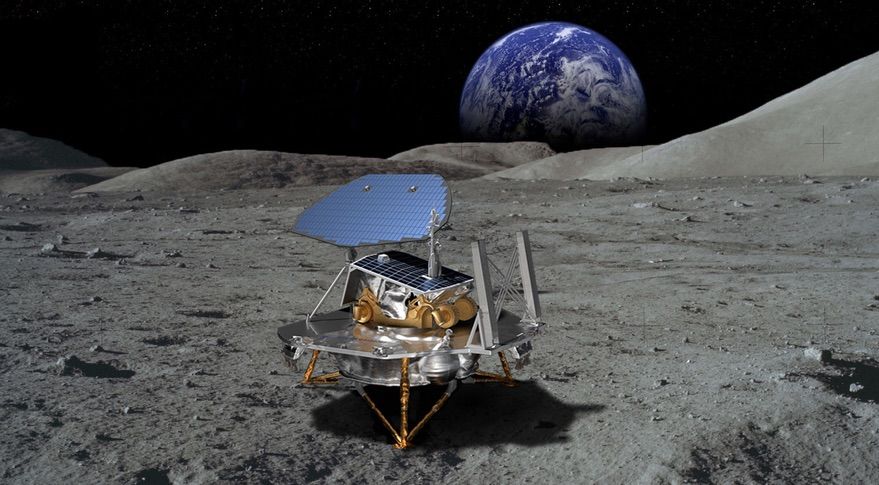
Private companies – instead of NASA -- will lead the race back to the moon, with launch target dates set for 2019 – the 50th anniversary of the first manned moon landing.
Hot on the heels of successfully landing a spacecraft on Mars on Nov. 26, NASA officials explained it will partner with nine private companies who "will compete to deliver experiments to the lunar surface," the Associated Press reported Thursday.
The so-called Commercial Lunar Payload Services (CLPS) contracts have a combined value of $2.6 billion over the next 10 years, NASA officials said in their public announcement in Washington, D.C. The nine companies will be eligible to compete for those contracts, Space News reported.
Jim Bridenstine, NASA administrator, said NASA will buy the service and let private industry work out the details on getting to the moon.
Characterizing the U.S. race to the moon "a fledgling industry," he said NASA will rely heavily on the private companies' research and will be affordable.
"These are not expensive missions," Bridenstine told reporters before the announcement. "This is like a venture capital kind of effort where at the end of the day, the risk is high but the return is also very high for a low investment."
Two advantages of the partnerships include getting U.S. astronauts back to the moon more quickly and keeping them safer after they arrive.
Among the research projects the companies are working on include radiation monitors, laser reflectors for gravity and measurement devices, said moon project leader Thomas Zurbuchen, NASA science mission head. Seemingly, the research is already in progress.
"We're going at high speed," said Zurbuchen.
The nine companies range from startups to aerospace giants, reported Space News, which added that while they are eligible for future contracts to deliver payloads to the surface of the moon, there is "no guarantee of business for any of them."
The companies partnering with NASA are:
Astrobiotic Technology Inc. of Pittsburgh; Deep Space Systems of Littleton, Colorado; Draper of Cambridge, Massachusetts; Firefly Aerospace Inc. of Cedar Park, Texas; Intuitive Machines of Houston; Lockheed Martin of Littleton; Masten Space Systems Inc. of Mojave, California; Moon Express of Cape Canaveral, Florida and Orbit Beyond of Edison, New Jersey.
Lockheed Martin was responsible for the InSight lander, which landed on Mars earlier this week. Lockheed Martin is building the McCandless Lunar Lander, modeled after InSight, which the private company built for NASA.
The McCandless Lunar Lander is named after the late astronaut and former Lockheed Martin employee Bruce McCandless. In 1984, he performed the first free-flying spacewalk without a lifeline to the orbiting shuttle, using a company-built jetpack. The photo of McCandless floating by himself in the blackness of space, with the blue Earth in the background, is one of NASA's most iconic.
According to AP, the new partnerships are loosely modeled after NASA's successful commercial cargo deliveries to the International Space Station. SpaceX and Northrop Grumman, formerly Orbital ATK, have built space station shipments since 2012. SpaceX plans to start transporting astronauts to the orbiting lab next year, as does Boeing.
Bridenstine said NASA wants the companies to succeed, but "is certain some of the efforts will fail," AP reported.
Specifically, Zurbuchen said expectations should not exceed 50 percent. The AP did not elaborate.
Within the partnerships, NASA will be one of many customers who will use lunar services such as rocket rides, Bridenstine said.
NASA's objective is encouraging competition among the private companies in order to set up an orbiting outpost near the moon as fast as possible.
Uncommon Knowledge
Newsweek is committed to challenging conventional wisdom and finding connections in the search for common ground.
Newsweek is committed to challenging conventional wisdom and finding connections in the search for common ground.
About the writer
To read how Newsweek uses AI as a newsroom tool, Click here.








